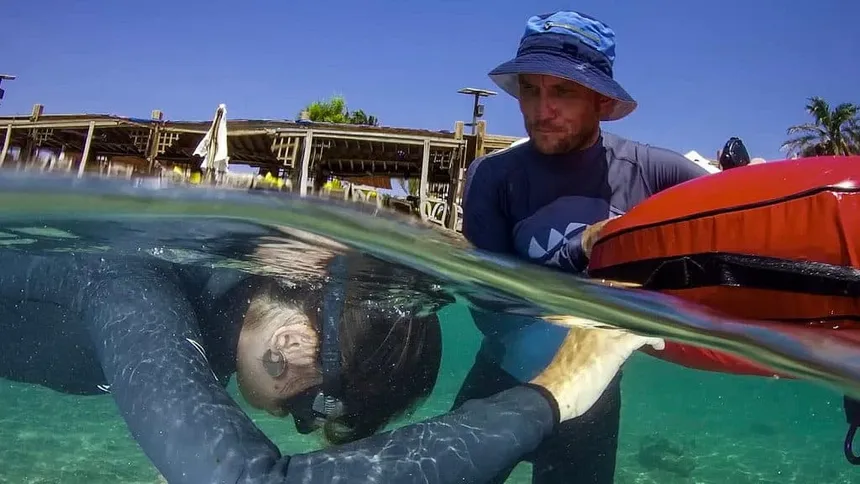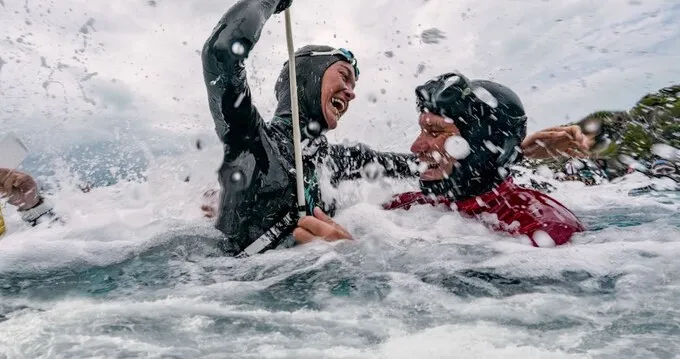Netflix’s latest documentary, “The Deepest Breath”, has faced criticism for its handling of sensitive subject matter. The film tells the story of freedivers who risk their lives to reach incredible depths, but in doing so, it may be revealing too much and too little. The documentary’s approach has been seen as sensationalizing the deaths of the freedivers, rather than providing a thoughtful exploration of the dangers involved.
One of the concerns with “The Deepest Breath” is that it overemphasizes the thrill and drama of the freegoing experience, rather than acknowledging the risks and consequences. The documentary creates a sense of anticipation and suspense, making the audience wonder if the freedivers will emerge from the depths unscathed. However, this approach can come at the cost of a nuanced understanding of the sport and the lives of those who practice it.
The film’s emphasis on drama and suspense can also be seen as disrespectful to the freedivers and their families. By making their deaths a central part of the narrative, the documentary is effectively exploiting their tragic circumstances for the sake of entertainment. As one critic notes, “The death of these men is not a plot twist; it’s a real tragedy that happened in real life.” By framing their deaths as a shocking revelation, the documentary diminishes the gravity and importance of their stories.
Furthermore, the documentary’s attempt to sensationalize the deaths of the freedivers can be seen as a form of emotional manipulation. By using dramatic music and graphic imagery, the film aims to elicit a strong emotional response from the audience. However, this approach can be counterproductive, as it may desensitize viewers to the real risks and dangers involved in freegoing. Instead of inspiring a sense of respect and awe for the freedivers’ achievements, the documentary’s approach may leave viewers feeling depressed and uneasy.

A Still From The Deepest Breath 2023 (Photo: The Deepest Breath)
On the other hand, some critics have argued that the documentary doesn’t reveal enough about the freedivers’ experiences and motivations. The film’s focus on the dramatic events that unfold can overshadow the personal stories and struggles of the freedivers themselves. By neglecting to explore the emotional and psychological aspects of the sport, the documentary provides a shallow and unbalanced portrayal of freegoing.
Ultimately, “The Deepest Breath” is a documentary that struggles to strike a balance between revealing too much and too little. While it may provide an exciting and suspenseful narrative, it also risks sensationalizing and exploiting the stories of its subjects. As the filmmaking community continues to grapple with the ethics of documentary filmmaking, “The Deepest Breath” serves as a reminder of the importance of respectfully and thoughtfully presenting true stories to the public.
























